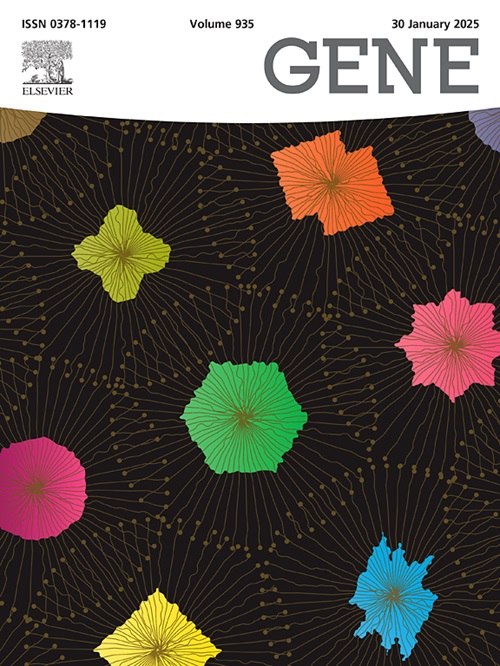使用 Nanostring nCounter Pancancer pathway Panel 对马斯林酸处理的 MCF-7 乳腺癌细胞进行基因表达谱分析。
IF 2.6
3区 生物学
Q2 GENETICS & HEREDITY
引用次数: 0
摘要
乳腺癌仍然是全球关注的重大健康问题,每年影响着数百万妇女。马斯林酸(MA)是一种五环三萜类化合物,已被发现对包括乳腺癌在内的多种癌症具有良好的抗癌作用,但其潜在机制仍不清楚。本研究旨在通过乳腺癌细胞的基因表达谱来阐明 MA 的抗癌特性。细胞毒性检测结果显示,MCF-7 在 MA 处理 72 小时后的敏感性最高,其次是 T-47D 和 MDA-MB-231。然后,利用 Nanostring nCounter Pancancer Pathway Panel 选择 MCF-7 进行深入分析,以分析基因(DEG)的差异表达。在三个时间点(24、48 和 72 小时)上,发现了 20 个重要的 DEGs,其中 5 个上调,15 个下调。硅学分析表明,这些 DEGs 参与了癌症通路、病灶粘附-PI3K-mTOR 信号通路、PI3K-Akt 和 Ras 信号通路。这些 DEGs 的调控有助于多种细胞活动,如细胞凋亡、抑制细胞增殖、细胞周期和存活、减少糖酵解、血管生成和 DNA 修复。此外,未折叠蛋白反应也是本研究中一个值得注意的生物过程。这项研究揭示了 MA 对乳腺癌治疗潜力的分子机制。本文章由计算机程序翻译,如有差异,请以英文原文为准。
Gene Expression Profiling of Maslinic Acid-treated MCF-7 Breast Cancer Cells Using Nanostring nCounter Pancancer Pathway Panel
Breast cancer remains a significant global health concern, impacting millions of women every year. Maslinic acid (MA), a pentacyclic triterpene has been found to exert promising anticancer effect in various cancers, including breast cancer, yet the underlying mechanisms remain unclear. This study aims to elucidate the anticancer properties of MA via gene expression profiles in breast cancer cells. Cytotoxicity assay results revealed that MCF-7 exerts the highest sensitivity after 72 h of MA treatment followed by T-47D and MDA-MB-231. MCF-7 were then selected for in-depth analysis using the Nanostring nCounter Pancancer Pathway Panel to analyze the differential expression of genes (DEGs). Across three time points (24, 48, and 72 h), 20 significant DEGs were identified, of which 5 were upregulated and 15 were downregulated. In silico analysis indicated that these DEGs were involved in Pathway of Cancer, Focal Adhesion-PI3K-mTOR Signaling Pathway, PI3K-Akt, and Ras Signaling Pathway. The regulation of these DEGs contributes to several cellular activities such as apoptosis, inhibition of cell proliferation, cell cycle and survival, reduction of glycolysis, angiogenesis, and DNA repair. Additionally, the unfolded protein response emerged as a noteworthy biological process in this study. This study unravels the molecular mechanisms underpinning the therapeutic potential of MA against breast cancer.
求助全文
通过发布文献求助,成功后即可免费获取论文全文。
去求助
来源期刊

Gene
生物-遗传学
CiteScore
6.10
自引率
2.90%
发文量
718
审稿时长
42 days
期刊介绍:
Gene publishes papers that focus on the regulation, expression, function and evolution of genes in all biological contexts, including all prokaryotic and eukaryotic organisms, as well as viruses.
 求助内容:
求助内容: 应助结果提醒方式:
应助结果提醒方式:


